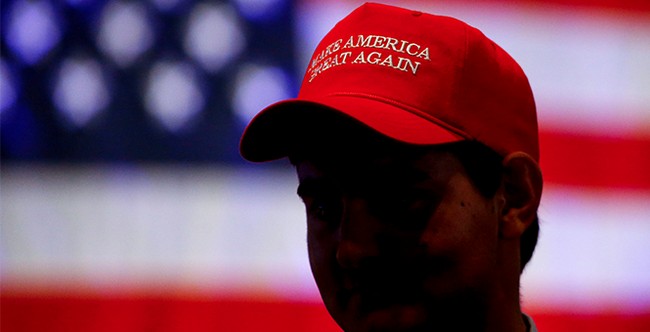Fifteen years ago, Sally Little of Fredericton took over her parents’ trailer in Florida, in the city of Largo, where her parents had spent their winters for two decades.
But now, Little and her husband, Dave, have decided to end their time as snowbirds in the wake of increased hostility toward Canadians and a flurry of decisions by U.S. President Donald Trump.
The last few months have been tumultuous, especially having to leave behind the community.
“We made new Canadian friends, New Brunswick friends we never would have met if it hadn’t been for that trailer park. We made many new American friends,” she said.
Little even taught English as a second language at the Largo library.
“I would walk into that library and just say, ‘I’m home.'”
But everything started to change in the winter of 2021.
Little said some Americans got upset when Canadians wore masks, both inside the park and outside, and often bragged about not getting vaccinations.
Many of the Canadians in the park had long been the organizers of social activities, such as spaghetti suppers and pancake breakfasts, but they pulled back from that to avoid large gatherings, which Little said caused a backlash.
“All of a sudden, Canadians were clustering a little bit, being a little more careful about what we said, which had never happened before,” she said.
The first rupture came when Trump pardoned those involved with the events of Jan.6, 2021, she said.
Then came the tariffs imposed on Canada by the U.S., but Little said the Canadians in the park were being blamed for any retaliatory measures.
She said when some Canadians in the park pushed back and encouraged people to read the news and educate themselves about the situation, they were told that news sources, such as CNN and NBC, were “fake news.”
But the straw that broke the camel’s back, said Little, was with the introduction of Trump’s executive order called “Protecting the American People Against Invasion,” which directed the Department of Homeland Security to “ensure that aliens comply with their duty to register” if they intended to stay in the U.S. for 30 days or longer.
This ultimately pushed Little to sell the trailer.
She contacted her six siblings and told them her plan.
Everyone immediately told her, “you need to do this,” said Little.
“Once I made that decision we never looked back, we never regretted it, we never questioned ourselves.”
In the park where Little has wintered for so many years, she said other Canadians had a similar idea, and about 14 trailers went up for sale. Four of the Canadian sellers were able to find buyers and won’t be back, she said — including her next door neighbour in Fredericton.
Little said she’ll miss the fun they had in Florida, and the last three weeks have been sad and stressful having to say goodbye to the American friends they made over the years.
Each winter, Little said the drive to Largo was always busy — jam-packed roads with fellow snowbirds.
But when driving back to Fredericton this last time, crossing 13 states, she only counted 32 Canadian license plates.
Entering Maine, she said the lack of Canadians was apparent.
“You go through Portland, there’s no Canadians, you go through Bangor, where are the Canadians? You go through Houlton, where are the Canadians?”
“[We] got to the border at Houlton — no cars, no trucks, nothing. And the customs officer was so lovely.
“She did her little thing with our passports and everything, and then she said, ‘Welcome home.’ And I burst into tears.
“I have never been so glad to get back across the border and to be welcomed home.”




